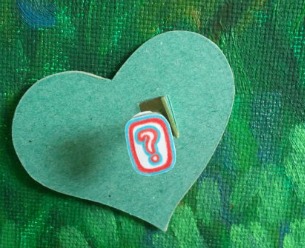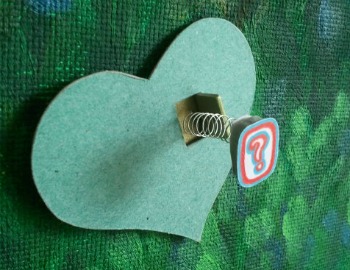Understanding Emotions
by May Bleeker, 9 Aug 2010, (updated 9 January 2012)
Understanding emotions is similar to understanding colour. Everyone has their own experience. Shades, intensities, hues, tones and textures vary from person to person.
Although we all know what 'blue' means, when you say 'blue', your shade of blue might look slightly different to mine. In the same way, while we all know what 'angry' feels like, your anger might feel different to mine.
Yours might get you 'hot under the collar', whereas I might go 'cold' with anger.
You might want to 'blow your top'. I might want to 'freeze you out'.
You might hotly tell me what to do, and I might coolly tell you where to go.
Can you see what I mean?
For one person, jealousy is like a sharp knife in their insides. For another, it is like the screeching of fingernails on a chalkboard, or like being choked, or a burning in the stomach.
Some people really struggle with understanding emotions. They might have one or more of the following problems:
You Cannot 'Feel' Your Emotions
This is when your emotions seem like they are happening at a distance. You might feel a vague sense of unease, but might not know what it is about. What you feel might show up through some or other physical ailment that you don't realise is related.
When something upsets you, you might get a pain in your stomach, or a headache, or backache, or you might feel like throwing up, without understanding that your feelings are contributing to these physical symptoms.
Because you don't really know how you feel, when emotions unsettle you, you don't know what to do about it. So you treat the symptoms. You take a pill. Or you do things to keep busy, or maybe you drink some to relax, or watch more TV or otherwise try to drown out these uncomfortable sensations.
While some of these will distract you from your feelings, living this way is like living with blinkers on. There's a whole world of emotional information that you remain unaware of. When a blanket covers one aspect of your awareness, it usually covers several more. Problems remain unattended to and feelings (and physical symptoms) become chronic.
To become better at understanding emotions and more self aware it is necessary to get in tune with what you are feeling. Understanding what you feel helps you decide what to do about a situation. It helps you manage yourself and your manage your emotions more effectively.
You Cannot Name Your Feelings
This is when you are not able to clearly differentiate between the different emotions you might be feeling, or 'don't have the words' to say how you feel.
You might be irritated, but think you are bored. You might feel anxious a lot, but think you are the kind of person who 'can't sit still for a minute.'
Because you can't name your emotions you can't talk about them or even think about them in any helpful way.
You don't know how emotions change and mix together and influence each other. You might start out irritated, but you don't address the source of irritation. It becomes worse. You become angry. But the anger was avoidable. If you identified and attended to the original source of irritation, it would have subsided.
Or you might get angry at being disappointed by someone, never realising that it is the sadness at being let down that is fueling the anger. When those sad feelings are taken care of, the anger will dissipate too.
Not being able to name your feelings can cause problems in your relationships with others. Particularly romantic relationships.
Being able to express how you feel is pretty helpful in moving things forward. Being too vague can come across as non-committal or 'wishy-washy' and really mess things up.
You Cannot 'Read' Other People's Emotions

When you find it difficult to feel and understand your own feelings, it is just as difficult to accurately identify the feelings that other people feel. Major misunderstandings arise from 'getting it wrong.'
Other people's facial expressions and body language, no matter how subtle, tell you a lot about how they are feeling. When you can't read this emotional language, social situations become very tricky.
You might annoy people through some small mannerism, but because you don't pick this up, you keep on doing it, and they start to avoid you - but you don't understand why!
You might walk into a sensitive conversation, but because you don't pick up on the 'vibes' you bust right in with an inappropriate remark and people clam up. When you ask what's wrong, they say 'nothing'. What can you do about 'nothing'? But people won't share with you if they fear you will walk all over their feelings.
And it can be really frustrating for the other guy if all you say is 'nothing', even when you are upset. Edie Brickell & the New Bohemians sing all about this in their song Nothing.
Knowing what you feel enables you to find a way to manage your emotions. Being able to accurately 'read' other people's feelings helps you respond to social situations in an effective way.
You have a definite advantage if you are able to calm an angry person, console a disappointed person, and cheer up a sad person. And it is particularly good if you are also able to do this for yourself!
If you sometimes have trouble understanding emotions, and if emotions are like a mysterious minefield to you, try the exercise below to increase your emotional self awareness.
Self Esteem In Action - Understanding Emotion Series
Return to Emotional IQ
Return from Understanding Emotions to Doorway to Self Esteem Home Page






New! Comments
Your feedback is welcome: